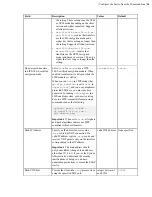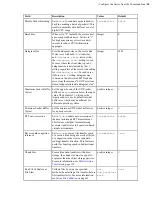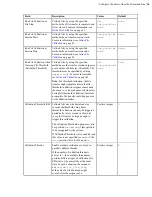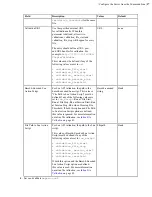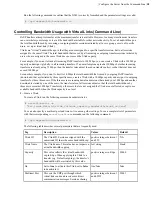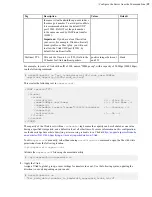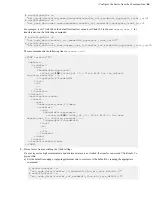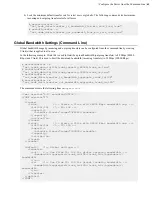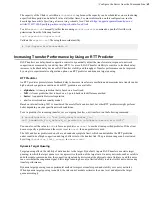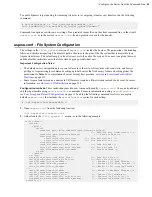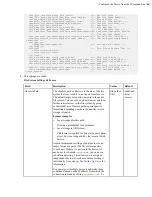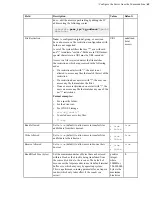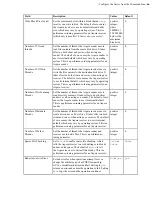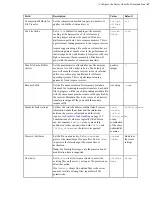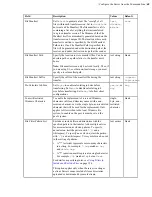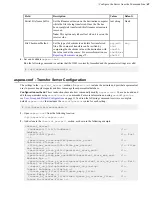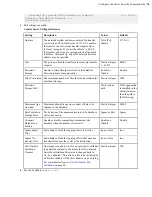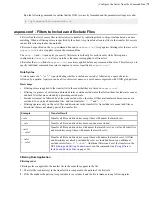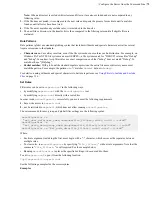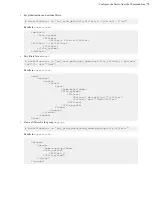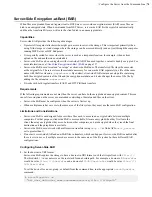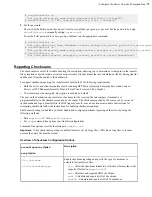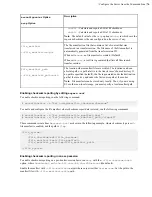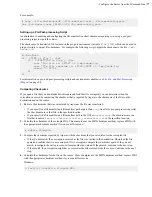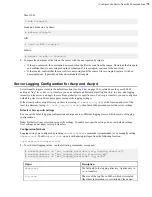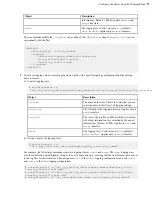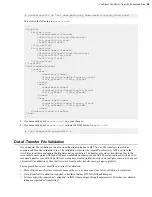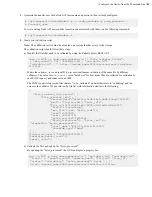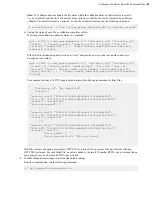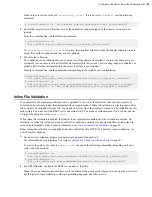
| Configure the Server from the Command Line |
68
Field
Description
Values
Default
File Manifest
Set to
text
to generate a text file "receipt" of all
files within each transfer session. Set to
disable
to
not create a File Manifest. The file manifest is a file
containing a list of everything that was transferred
in a given transfer session. The filename of the File
Manifest itself is automatically generated based on the
transfer session's unique ID. The location where each
manifest is written is specified by the File Manifest
Path value. If no File Manifest Path is specified, the
file will be generated under the destination path at the
receiver, and under the first source path at the sender.
text
,
disable
,
or
none
none
File Manifest Path
Specify the location to store manifest files. Can be an
absolute path or a path relative to the transfer user's
home.
Note:
File manifests can only be stored locally. Thus, if
you are using S3, or other non-local storage, you must
specify a
local
manifest path.
text string
blank
File Manifest Suffix
Specify the suffix of the manifest file during file
transfer.
text string
.aspera-
inprogress
Pre-Calculate Job Size
Set to
yes
to enable calculating job size before
transferring. Set to
no
to disable calculating job
size before transferring. Set to
any
to follow client
configurations.
yes
,
no
, or
any
any
Convert Restricted
Windows Characters
To enable the replacement of reserved Windows
characters in file and directory names with a non-
reserved character, set to the single byte, non-restricted
character that will be used for the replacement. Only
applies to files written to the local Windows file
system; to enable on the peer it must be set on the
peer's system.
single-
byte, non-
restricted
character
blank
File Filter Pattern List
Exclude or include files and directories with the
specified pattern in the transfer. Add multiple entries
for more inclusion/exclusion patterns. To specify
an inclusion, start the pattern with '+ ' (+ and a
whitespace). To specify an exclusion, start the pattern
with '- ' (- and a whitespace). Two symbols can be used
in the setting of patterns:
• A "
*
" (asterisk) represents zero to many characters
in a string. For example,
*.tmp
matches
.tmp
and
abcde.tmp
.
• A "
?
" (question mark) represents a single character.
For example,
t?p
matches
tmp
but not
temp
.
For details on specifying rules, see
on page 126.
This option applies only when the server is acting as
a client. Servers cannot exclude files or directories
uploaded or downloaded by remote clients.
text entries blank

